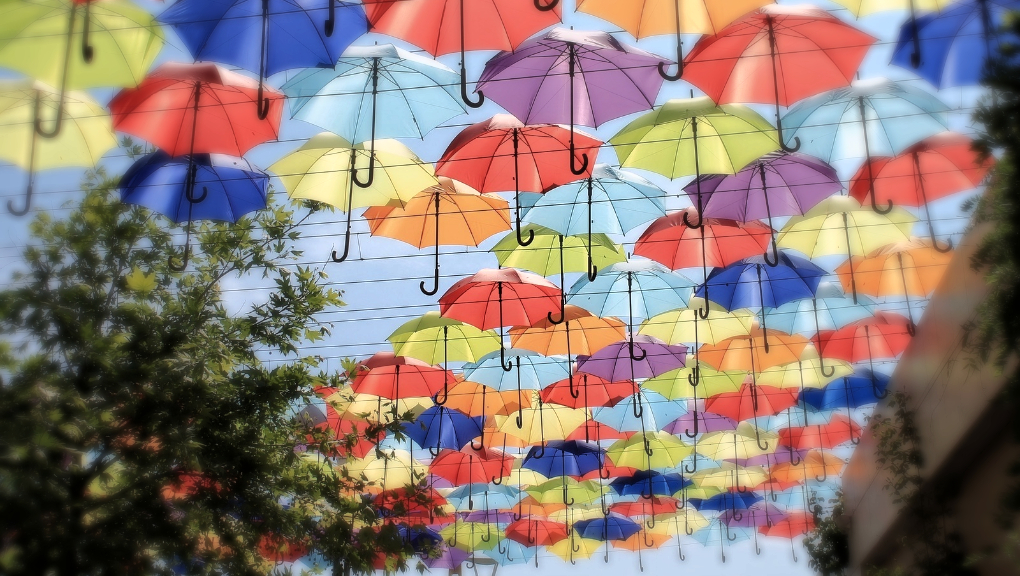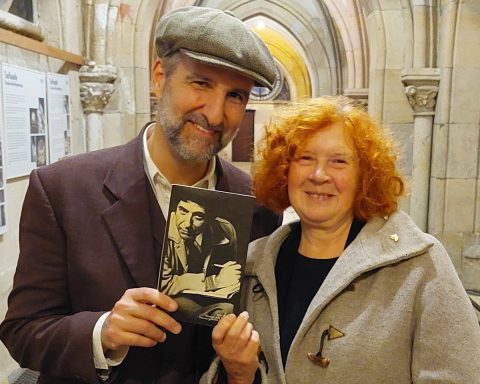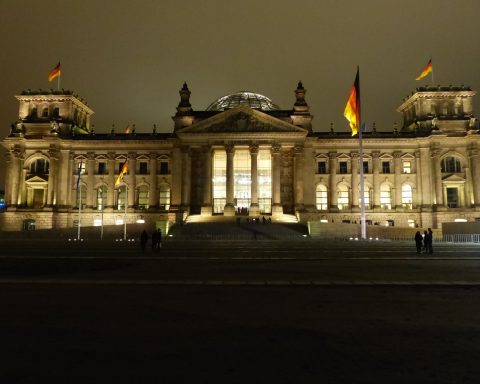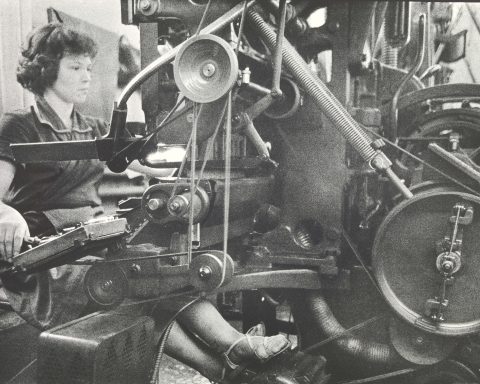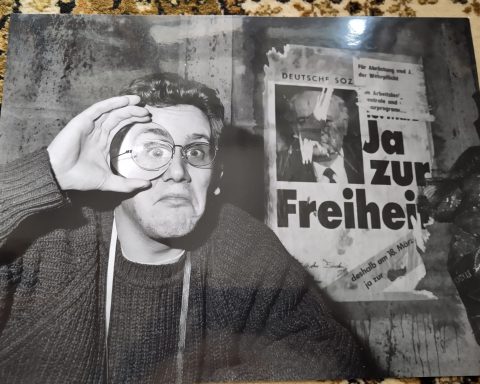Vyacheslav Huk’s poetry is a powerful expression both of Ukraine’s European aspiration and the pain of being an exile within his own country. He was in the Ukrainian capital Kyiv in March 2014 when Russia launched its special operation to seize his Crimean birthplace.
He saw the images of Russian Special Forces seizing Crimea’s Parliament with the ugly clarity of a bad dream.

Vyacheslav was born in Russian-speaking Saky on the Peninsula, but always loved the Ukrainian language. The writers he admired included the subtle Ukrainian modernist poet Ihor Rymaruk and the ground-breaking feminist authors Olha Kobylianska and Natalia Kobrynska.
Another part of Vyacheslav was also attracted to Scandinavian culture. He was pathologically addicted to the films of Ingmar Bergman and the music of Niels Gade. His poetry belongs, in his words, to the “sensory physiological school” and aims to have the visceral impact of Seamus Heaney’s writing.
He is paradoxically thankful for his early cultural isolation in Crimea, which allowed him to develop a style in accord with his heart rather than that of critics and publishers. His work reflects European authors, including Patrick Kavanagh and numerous German and Italian writers.

His use of Ukrainian, and his importing of European writers, symbolise, in miniature, the choice facing Crimea.
He believes that Ukrainian literature has a mission to unify all of Europe around the realisation of European values, but that these processes are “latent and concealed.” For Vyacheslav, the Ukrainian language offers the promise of unifying its homeland, both internally and with Europe.
His recent poetry poignantly depicts everyday characters, landscapes and incidents in Ukraine: a rural teacher or a thrush, brought down by a rain on the garden grass, a man injuring himself with sequiturs. These are evoked with a novelist’s eye for details and their symbolism is gently implied.
The poems can be read and reread, and each time you discover some new element in these beautifully crafted verses. One day this author, who is simultaneously Crimean, European and Ukrainian, will be able to recite these lines in their original Ukrainian and in his native Saky.
Intro by Stephen Komarnyckyj
Vyacheslav writes about his contest-winning poem:
“I have never been to Germany, and saw Leipzig only in photos or in dreams. In this poem, I wanted to depict a Leipzig of the past, a place in a time long gone.”
Original in Ukrainian:
LEIPZIG
Стівенові Комарницькому
Старі липи – наче сходи будинку десь у передмісті,
без угаву ржавіє у крані вода, і стигне у жилах кров,
зі Східного фронту щодня приходять невтішні вісті,
пливуть наосліп мерхлі тіні суденець – везуть улов;
із Weiße Elster тхне риб’ячим гниттям, із зусиллям
жирні хвилі намагаються виплисти на берег вдень,
наче потопельники, що напинають свої сухожилля,
натруджені муштрою, як міць спортивних легень;
на плесі ще довго хитається збурена тінь хвостата,
вночі над річкою чується безжурний жіночий сміх –
це вельми схоже на уривки із зрілої прози Сартра:
та сама незнищенна любов, подоланий крик і гріх;
це судна, у яких заціпило м’язи, судна, що тільки
долають невеличкі відстані, вгризаючись у туман
залізним бряжчанням ланцюгів, як звірячих іклів,
розверстим гаривом рваних, ледве присохлих ран
ранніх зірок, що теплим світлом блимають в небі,
зо дна глухо випливають риби, прагнучи перемін,
гасне мідня зоря на хвилі, на її бузковому гребні, –
так слабшає воля жокеїв, коли коні беруть розгін.
English translation:
LEIPZIG
for Steven Komarnyckyj
Old lime trees, like stairwells somewhere in the suburbs,
rusty water incessantly runs from the tap, and blood runs cold,
from the Eastern front, disheartening news keep coming daily,
withered boat shadows sail blindly, with their catch in the hold.
By day the White Elster reeks with festering fish,
surfeited waves try to scramble onto the river bank,
like floaters spraining their drill-worn tendons,
with all their athletic lungs’ strength;
a restless tailed shadow sways on the stream pool,
the night is stitched with women’s nonchalant laughter:
indestructible love, stifled cry, vanquished sin –
echoing scraps of prose by a seasoned Sartre.
those are the boats whose muscles are spastic,
they cover short distances, bite into the mist
with an iron clamor of chains, like animal fangs,
gaping embers of freshly healed gashes –
daystars blink warmly; from the deaf river bed,
fish come to the surface, yearning for changes,
copper dawn is quenched on the violet crest of the wave –
this is how jockeys’ will dwindles when their horses accelerate.
© 2018 Vyacheslav Huk (translated by Svetlana Lavochkina)

WINNER: 1003 NIGHTS (OF LEIPZIG) LITERARY CONTEST – POETRY
About Vyacheslav: “Vyacheslav Huk was born on the 15th August 1974, in Saky, in the Crimea, Ukraine. He obtained his higher philological education at the Simferopol State University and since 2003, he has been a member of the National Union of Writers of Ukraine. Vyacheslav has published six books of poetry and five novels: ‘The Syndrome of Childhood Memories’ (2008), ‘The Garden of Galatea’ (2008), ‘The Myrdal-fisk or Рhilosophy of Northern Solitude’ (2009), ‘Simpheropol’s Virginia’ (2010), ‘Gentle Skin or Veronica & Monica’ (2010). In 2007, he received an award from the President of Ukraine for young writers for his novel ‘The Syndrome of Children Memories.’ His novel ‘The Garden of Galatea’ was a Ukrainian response to an American novel by Nicole Krauss, ‘The History of Lovе’. Recently he learned that in Germany, it is thought that ‘The Garden of Galatea’ was written in ‘the language of Galician Jews.'” (Stephen Komarnyckyj)


